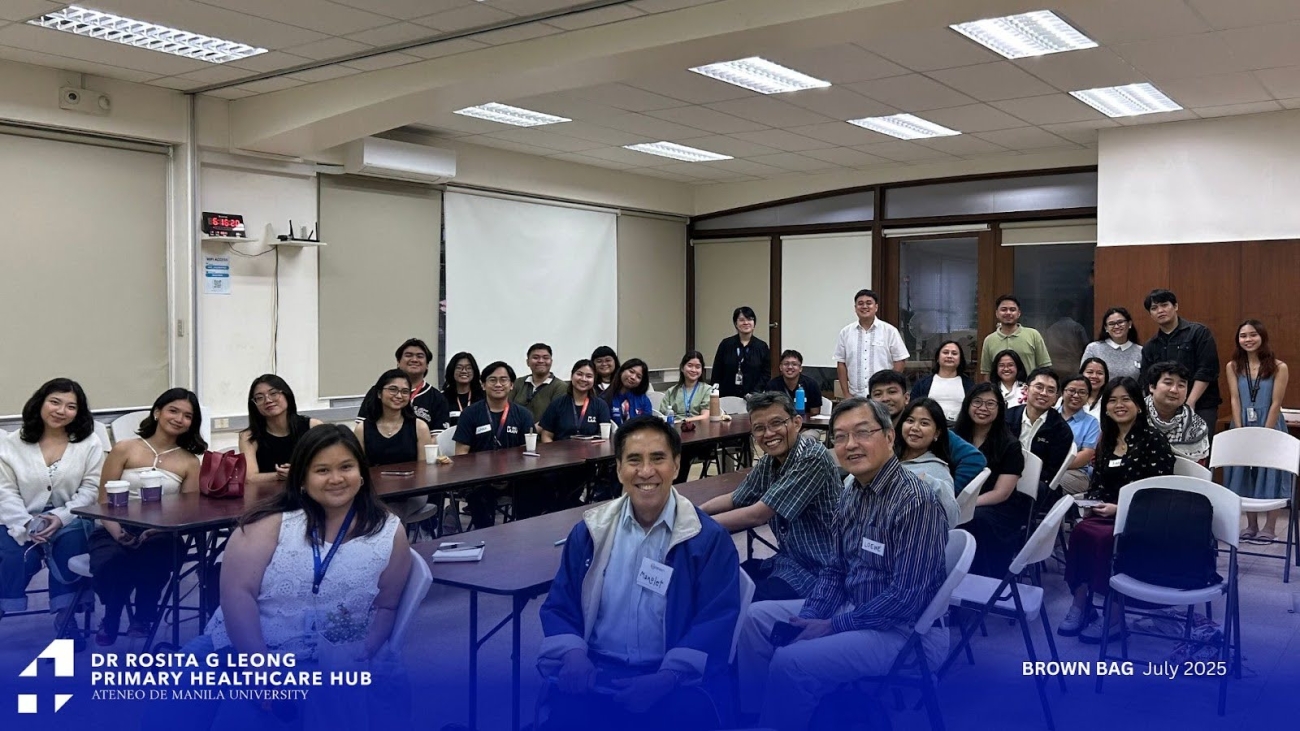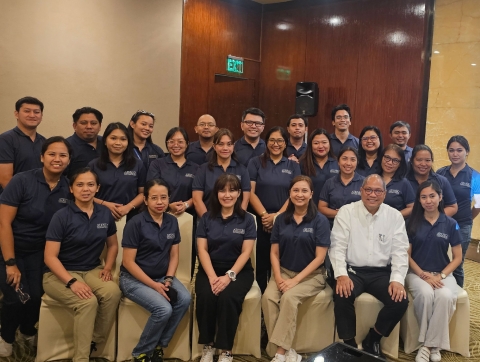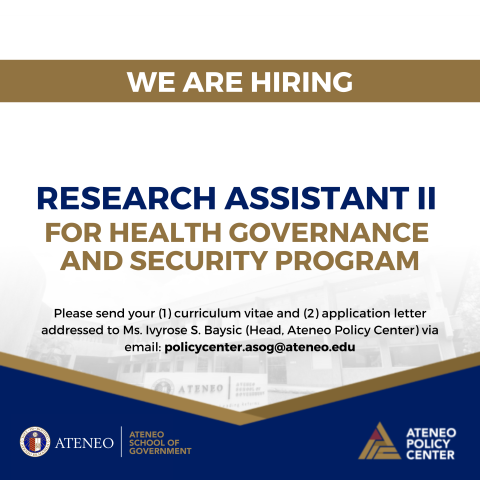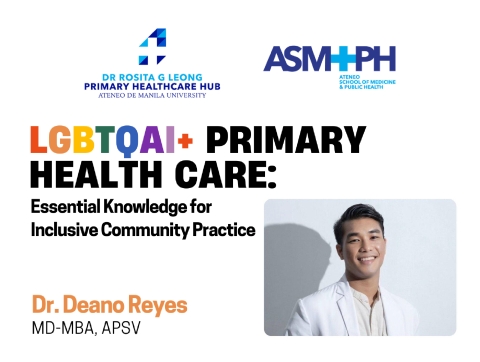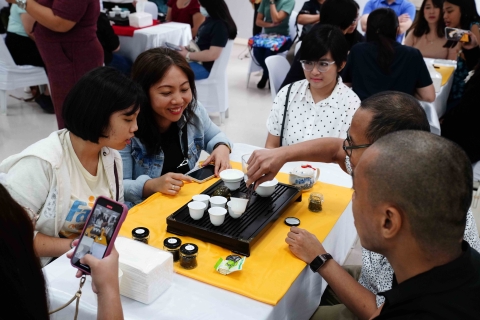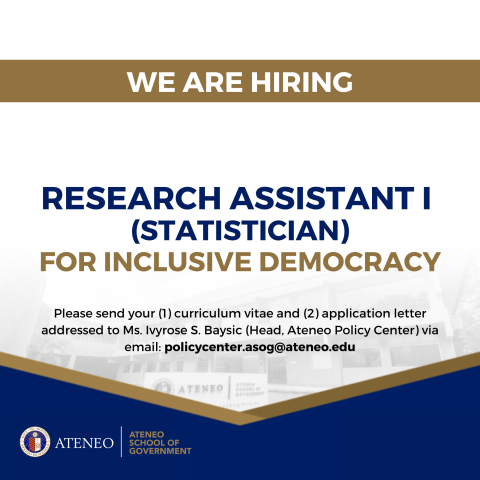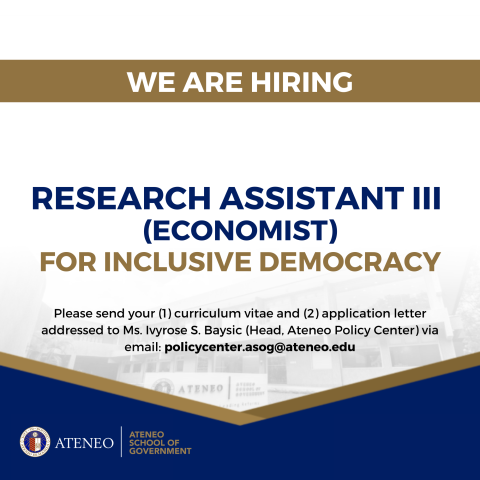RGL Hub examines the intersection of health and politics in Brown Bag Session
15 Jul 2025 | Dr Cheska De Jesus, Rei Gilian Noble, Patricia Ocampo, Sean Martin La Torre
On 5 July 2025, the Dr Rosita G Leong Primary Healthcare Hub (RGL Hub) held another Brown Bag session at Heyden Hall, Manila Observatory, Ateneo de Manila University. The session, themed “Health is Political: The Elections as a Social Determinant of Health,” brought together RGL Hub Board Members and ASMPH alumni from various institutions, including The Medical City, Johns Hopkins University, UNICEF, Bukluran ng Manggagawang Pilipino, the Makati Health Department, Eastern Pangasinan District Hospital, and the Conrado F Estrella Regional Medical and Trauma Center. Graduates of the DaMDamin program, ASMPH students, and members of Project LAAN, Inc were also in attendance.
The session began with a mindfulness exercise led by Dr. Cheska De Jesus, designed to ground participants and prepare them for self-reflection and meaningful discussion. This was followed by a reflective activity called Letter to Future Self, also guided by Dr. Cheska, which encouraged attendees to reflect critically and personally on their thoughts and feelings after the elections, as well as their hopes for the future of public health, upcoming elections, and their role in shaping health and governance in the country.
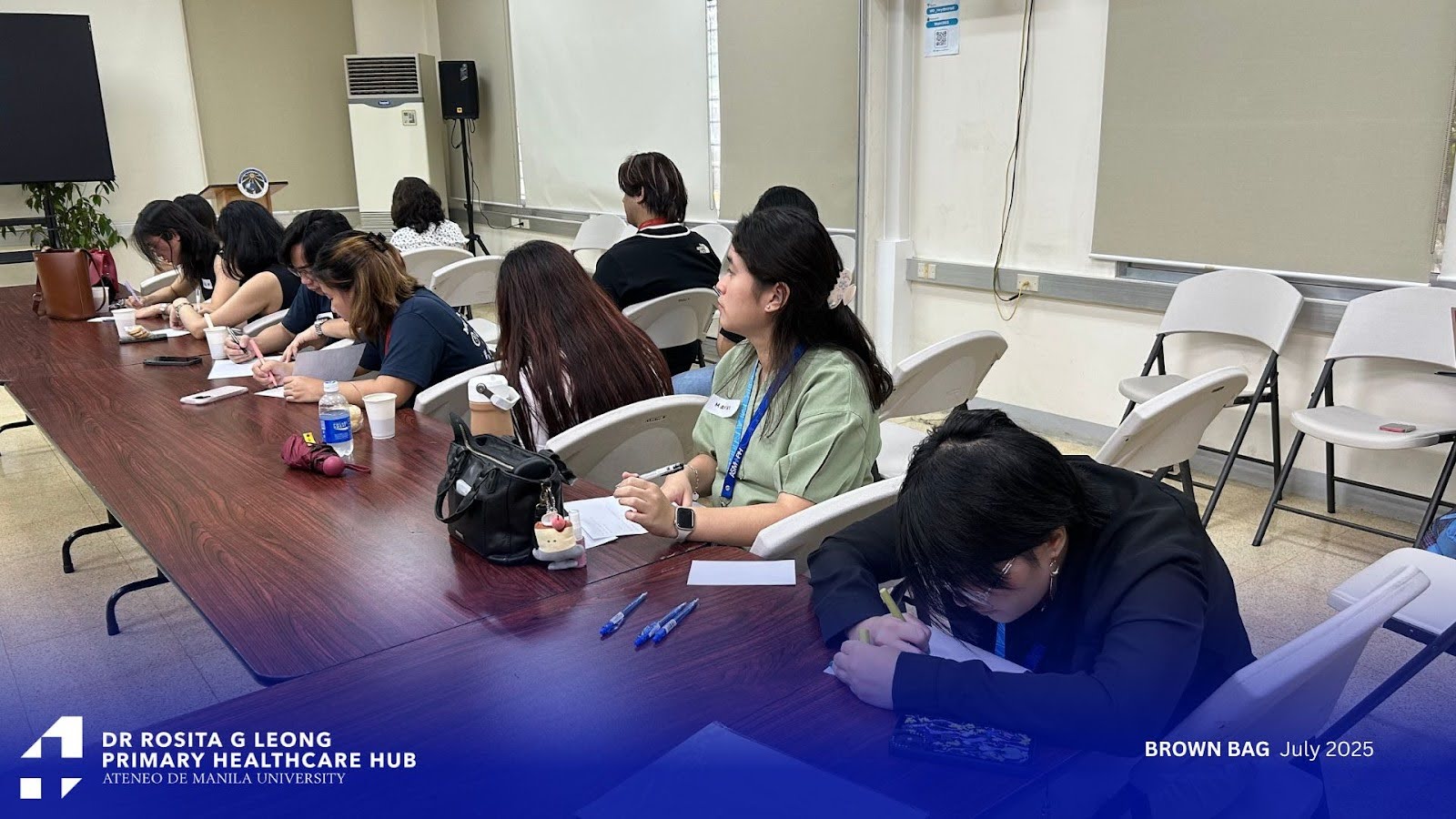
In the session’s sharing facilitated by Dr TJ Malvar, participants were encouraged to talk about any personal experiences of how politics or the political landscape that affected their current job, community, and self. To spur the discussion, they were asked: How do you think the most recent election results will affect your own work and the achievement of health for all in the country in the long term?
Dr Aimee Capinpuyan (ASMPH Batch 2019), in her time as a DTTB, realized that wage is one of the most critical determinants of health. More often than not, political turnover causes a ripple effect that results in shifting of priorities, wage cuts especially among Job Order workers, and displacement of staff which then leads to a disruption in health service delivery. Dr Capinpuyan also emphasizes that amidst political turbulence and beyond administrative consequences, we must find our circle of like-minded individuals who yearn for change and strive to do good—while ensuring the door remains open for others to join and carry the work forward.
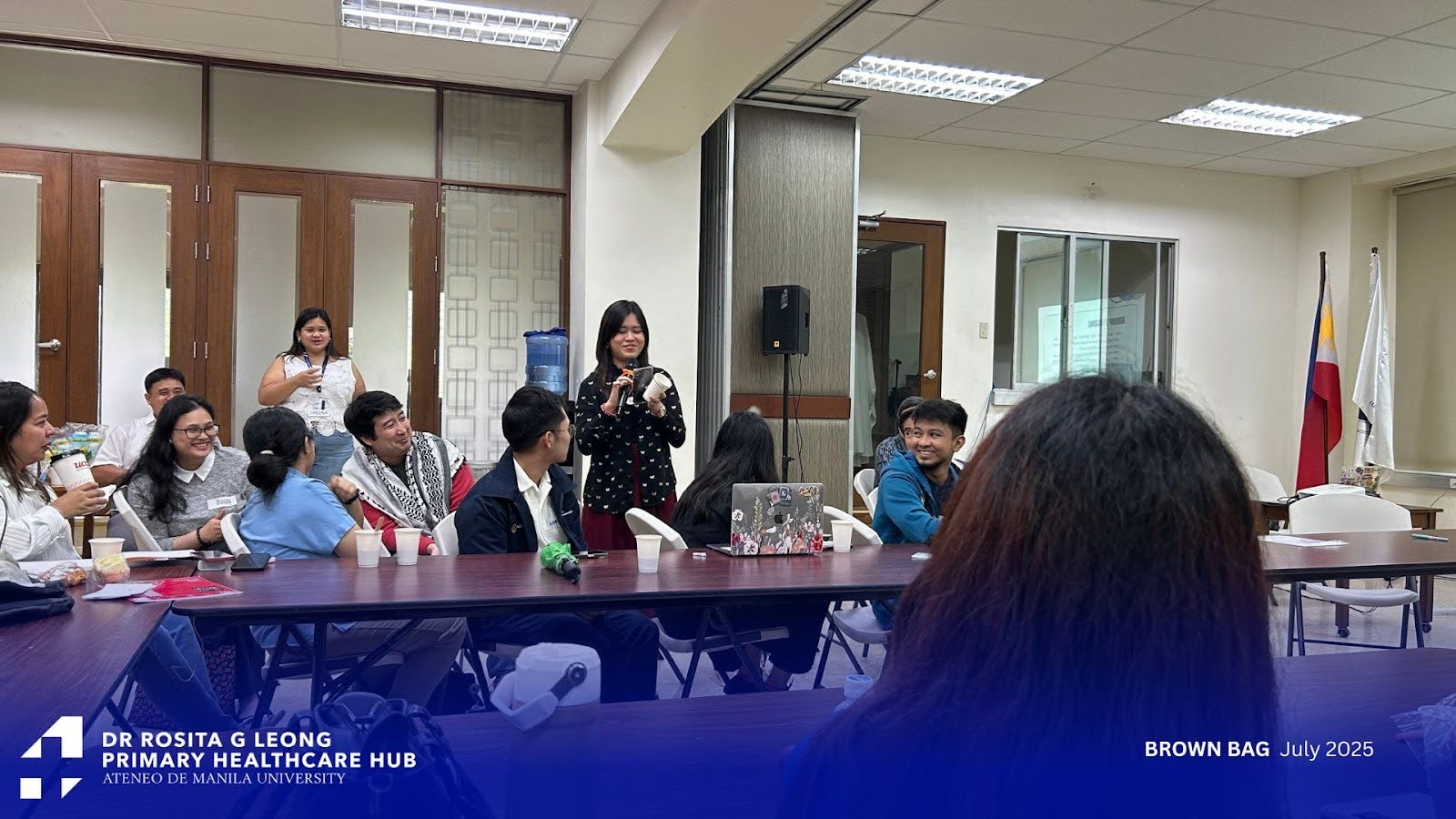
This need for proactive engagement resonated with Dr Rap Abacan’s declaration (ASMPH Batch 2019):
“We can’t just wait for the policy window, sometimes we have to break the window.”
Change, he argued, does not always come from within the existing structures, because the ones in place are flawed and subject to the conflict of existing powers. Sometimes, it requires bold, and deliberate action from individuals and communities who are unwilling to wait for ideal circumstances in order to push their needs for equitable access to healthcare.
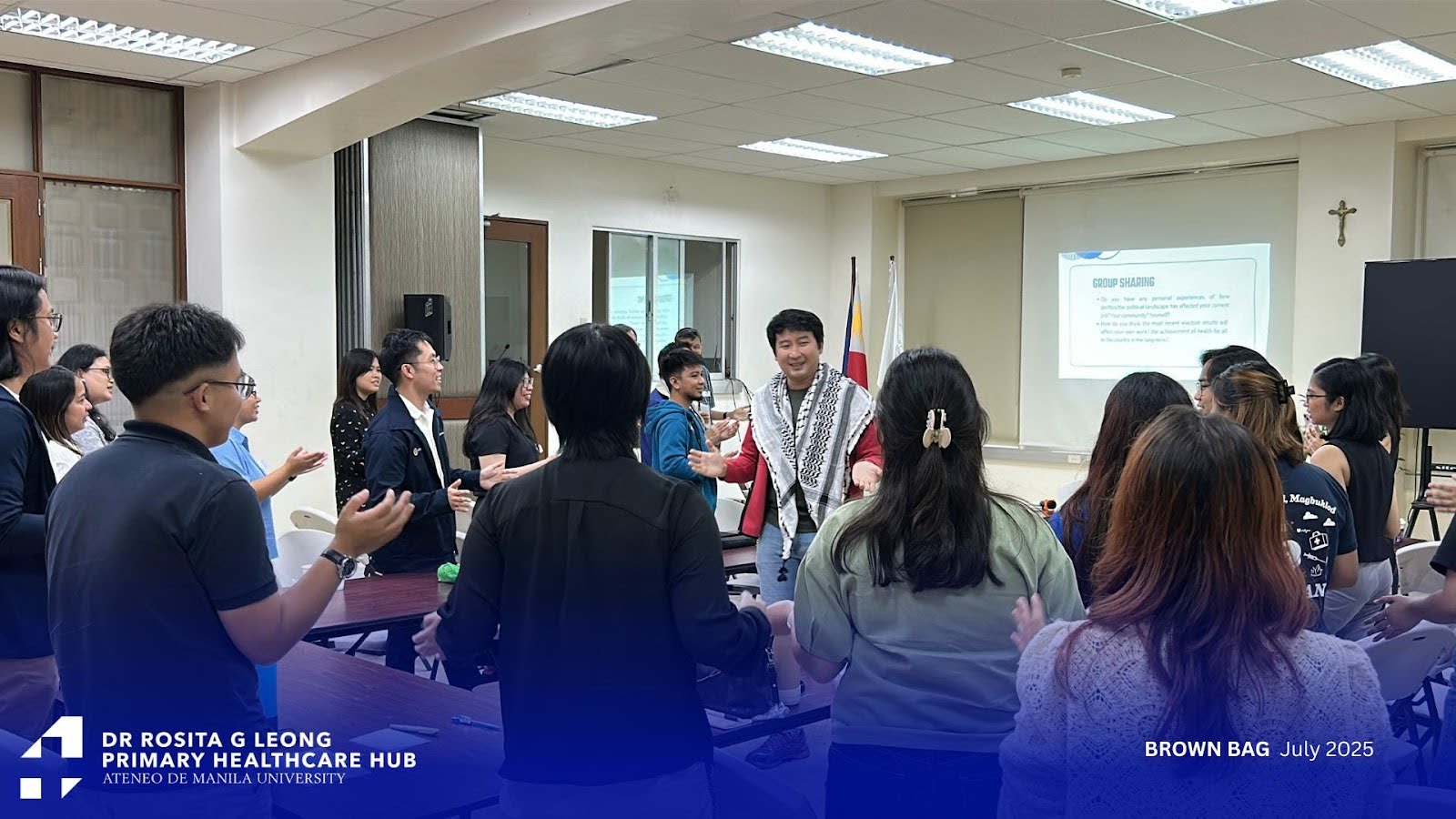
Dr Alberto Antonio Jr. (ASMPH Batch 2020) offered an example of proactive governance in practice through the Naga City People’s Council, which institutionalized active citizen participation across sectors. “The sociopolitical context is really important in health,” he said. In Naga, even budgeting is mission-based and every line item is intentional and aligned with a specific health outcome.
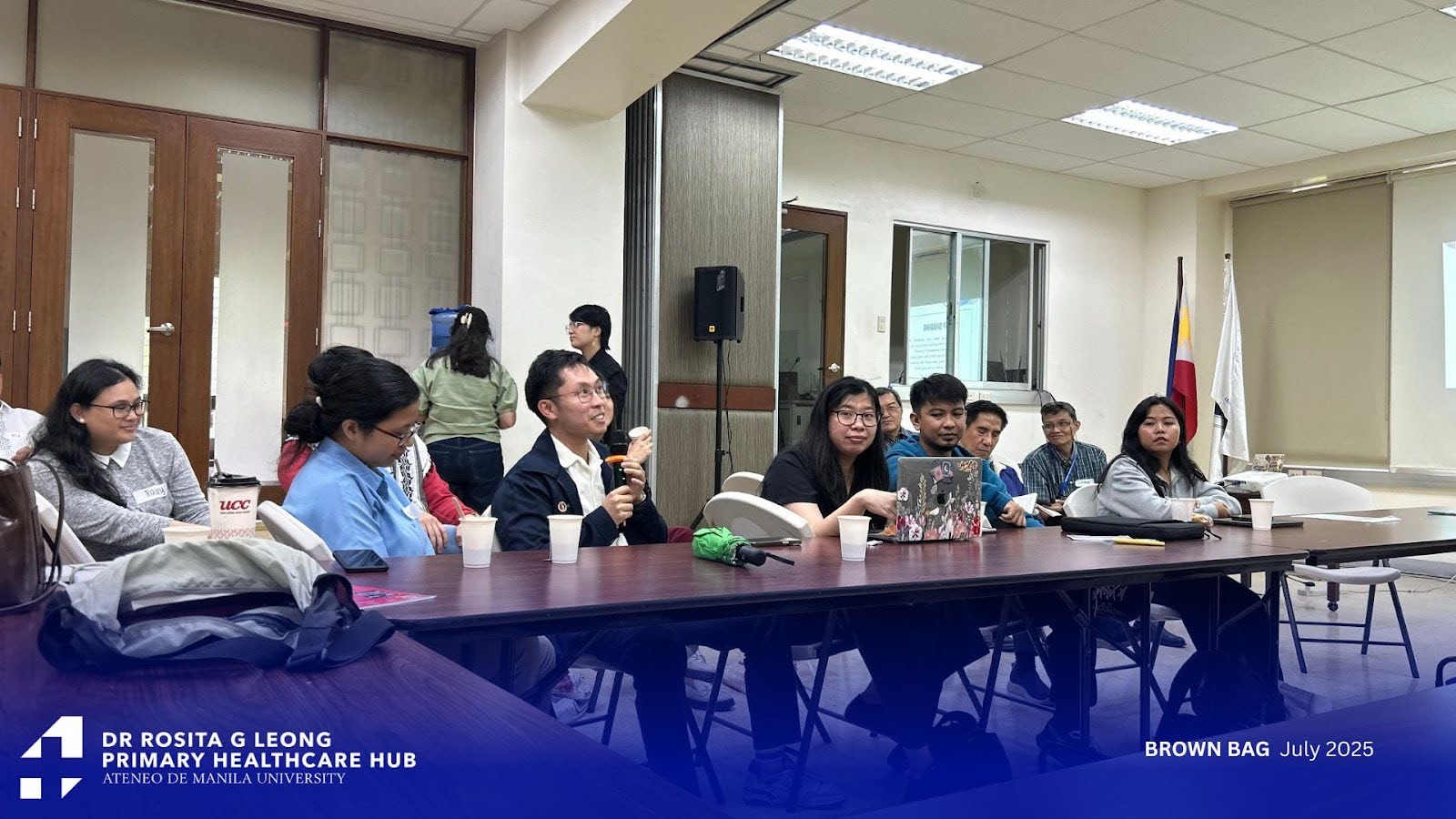
Atty Vincent Aureus, with his 9 years of experience working in congress, provided us with some legal insight by distilling politics into its raw essence in healthcare:
“Power is who gets what, when, and how.”
According to Atty Aureus, politics determines not just the policy in writing, but how far and how fast government programs reach the people whom they are meant to serve. He echoed the call for solidarity made by our alumni: “Always enter as a team. If you go in alone, you will be outmaneuvered, be pushed out or worse, become ineffective.” And while many may view politics as a problem/hindrance in the context of the Philippine healthcare system, he challenged this thinking:
“Politics is also the art of the possible.”
He reminded the attendees to leverage their resources and networks, and to never remain passive in the face of challenges.
Dr Loewe Go, Board Member of the RGL Hub and board-certified echocardiology specialist, recounted how instrumental the support of like-minded individuals was to his efforts when he was pushing for echo technician training and certification. Dr Manuel Dayrit, former Secretary of Health, former Dean of ASMPH, and a Board Member of the RGL Hub, shared that there are political spaces everywhere and there are chances to to operate in these political spaces if we take them.
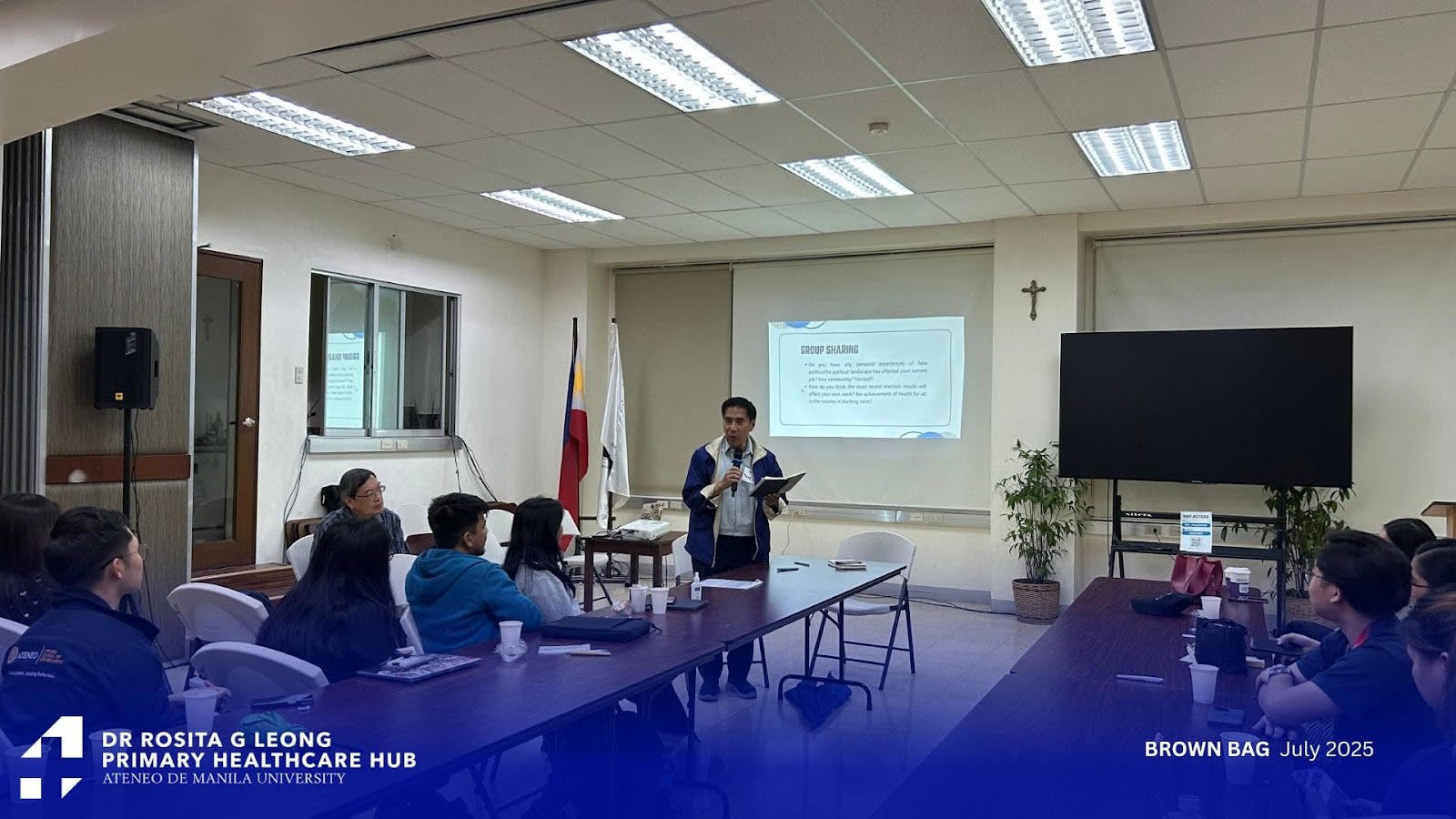
Finally, Dr Leland Joseph Dela Cruz, Assistant Vice President for Social and Environmental Engagement for Development and Sustainability at ADMU, synthesized the session by calling everyone to action. To transform broken systems, we must engage in politics rather than avoid it. The first step is to see things clearly—that is, to see things as they truly are—because only then can the real work begin. He also reminded participants that amidst all the challenges and struggles, it is important to remember and celebrate the accomplishments they have contributed to—“may nagawa ka.” He ended the session by encouraging everyone to be clever snakes in our approach to doing good so that we can do good more effectively.
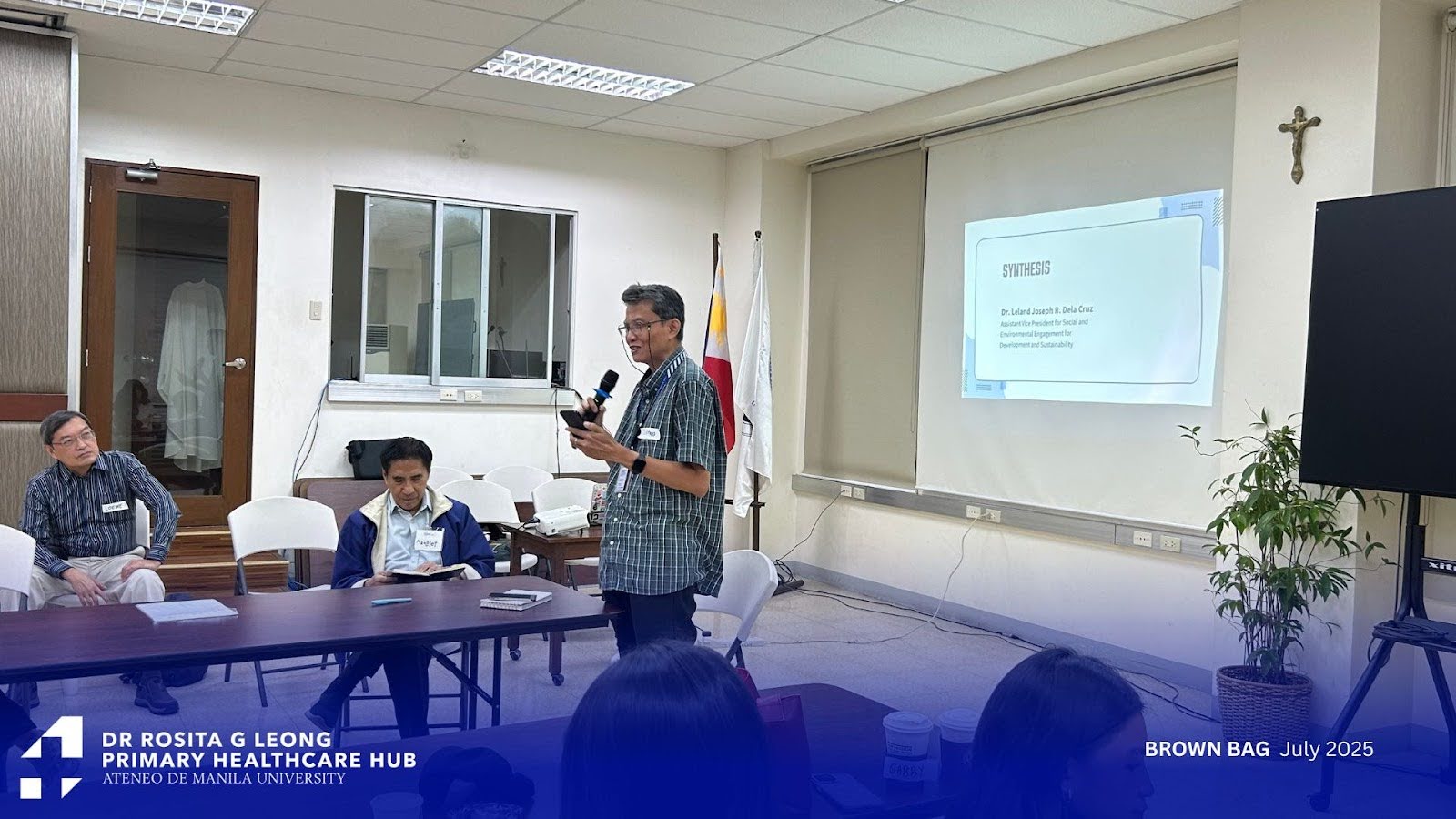
The session served as a powerful reminder that health is inseparable from politics. Through the lived experiences and insights of health professionals, legal experts, and advocates, it became clear that meaningful change requires not only clinical expertise but also political awareness, civic engagement, and collective action. As the RGL Hub continues to cultivate spaces for reflection and dialogue, this gathering reaffirmed a shared commitment among ASMPH alumni and partners: to shape systems that are not only efficient, but just—and to do so together, with courage, strategy, and solidarity.
The RGL Hub is the lead office in the Ateneo de Manila University's network working on strengthening and supporting primary care in the Philippines. For potential partnerships and collaborations with the RGL Hub, interested parties may reach out to Dr TJ Malvar via email at rglhub@ateneo.edu.

